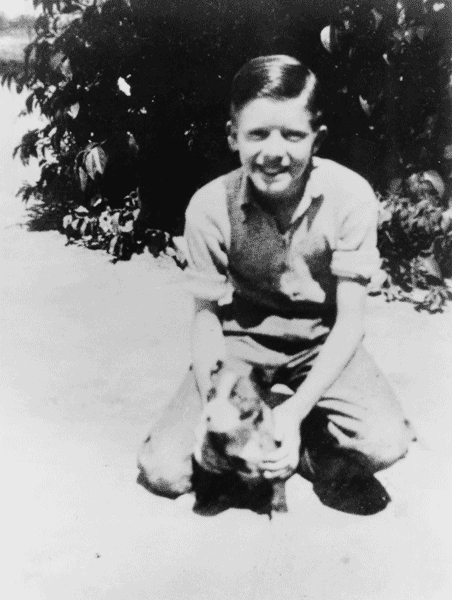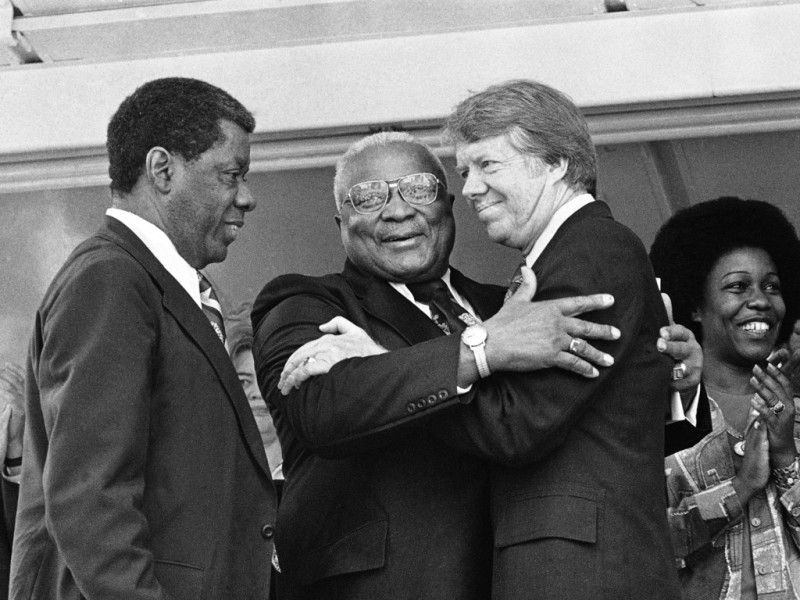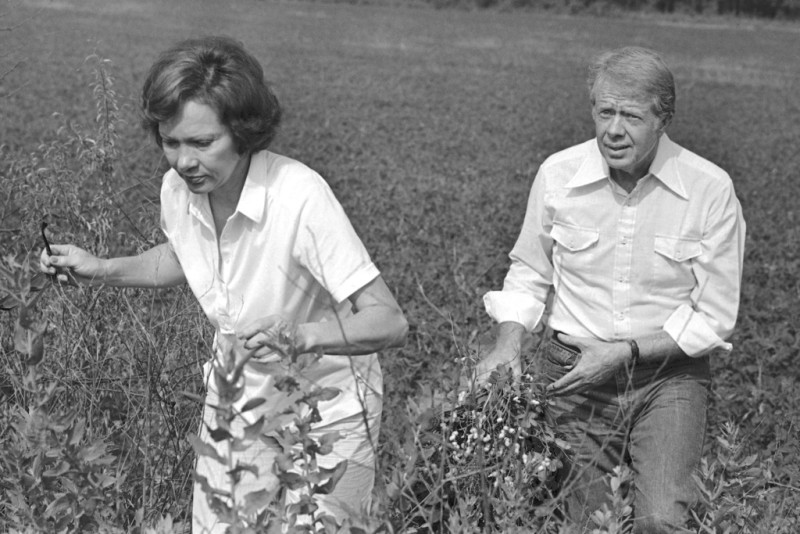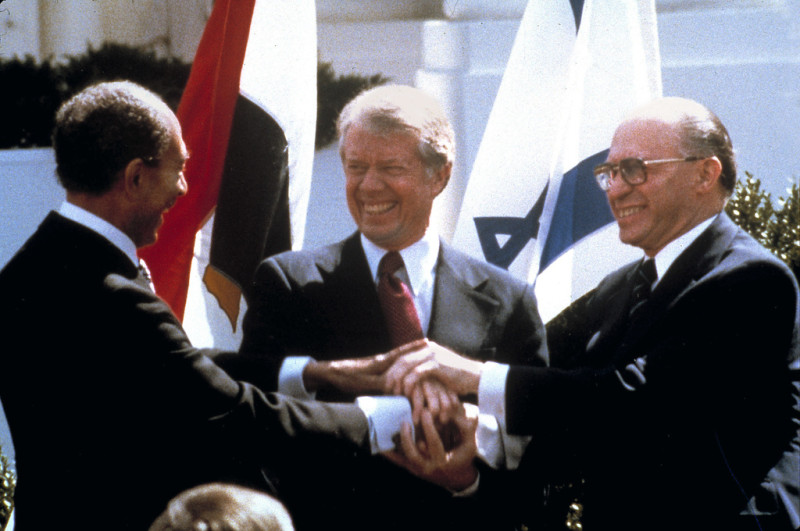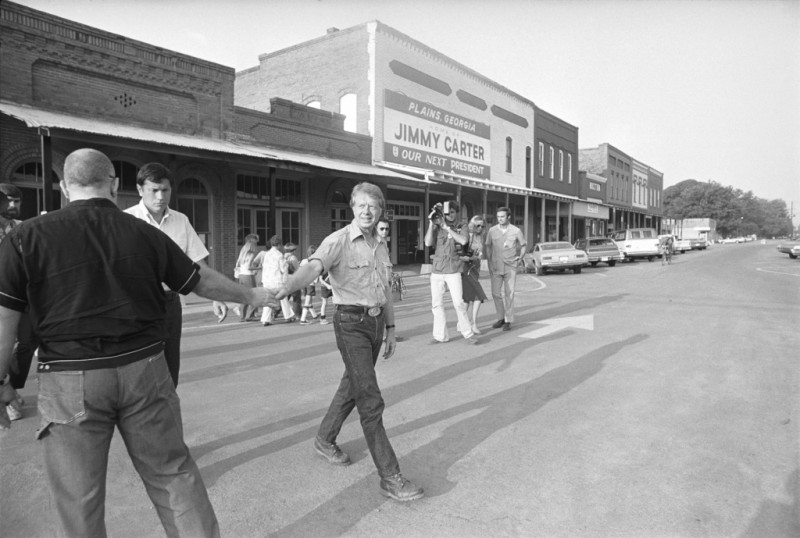For his humanitarian work, Jimmy Carter was awarded the Nobel Peace Prize – He lived longer than any other president after his term ended
THE Jimmy Carter, the Nobel-winning 39th president of the United States, who thought he was a peanut farmer at heart, and whose vision of a “competent and compassionate” government propelled him to the White House, died on Sunday. He was 100 years old, and as the “history” of modern America, he lived through many events, was shaped by many events, and also shaped many events with his politics.
This is an “end of an era” for the US, when politics and politicians behaved, expressed themselves and acted otherwise comment American media, using the word “statesman”. Carter was always modest, presentable and smiling, perhaps not as charming as the Kennedys, but certainly not as controversial as Richard Nixon.
Carter was awarded the Nobel Peace Prize for his humanitarian work.
Carter lived longer than any other president after his term ended. In the decades that followed he developed a reputation for being a better ex-president than he was as president – something he himself admitted.
He wrote more than 24 books, from his memoirs as president to children’s stories and poetry, as well as works on diplomacy and his deep religious faith.
Carter’s death follows that of his beloved wife Rosalyn nearly a year earlier on November 19, 2023 at the age of 96. They lived together a whole life.
As of February 2023, Carter has been on palliative care, a form of drug withdrawal, due to his diagnosis of metastatic melanoma to his brain and liver. Jason Carter, Carter’s grandson, announced in May that he believed the former president “was coming to an end” of the journey of his life, but he held on for a few more months.
The Carter family had a history of cancer, and the former president lost his father, brother and two sisters to pancreatic cancer. His mother had breast cancer, which later spread to her pancreas.
The unexpected when he had visited Greece
It is noted that during his visit to our country, Jimmy Carter was asked by a Greek journalist about the peanuts he grows, a subject that was a source of pride for him. “I grow the best peanuts in the world” he hastened to declare with a smile, and when the reporter told him about the pistachios he seemed ashamed of his boast. This small detail says a lot about Carter the man.
Moderate, gentle and smiling Carter saw his one term in the Oval Office overshadowed by economic recession at home and successive international crises abroad.
He continued to deal with foreign affairs, particularly with regard to the Israeli-Palestinian conflict. Carter met with the leadership and Palestinian representative of Hamas in 2009 and 2015. He criticized Israel for its military operations against Hamas in 2014, saying that “there is no excuse in the world for what Israel is doing.”
His childhood, his happy marriage with Rosaline
James Earl Carter Jr. was born in 1924 in Plains, Georgia. Plains is a rural town and Carter’s father was a farmer, a background that helped instill in him a love of the land, a devotion that would follow him throughout his life.
He was the oldest of four children of James Earl Carter and Bessie Lillian Gordy. His father was a prominent businessman in the community and his mother was a nurse.
Carter was descended from immigrants from southern England (his paternal ancestor arrived in the American Colonies in 1635), and his family has lived in the state of Georgia for several generations. Carter had recorded ancestors who fought in the American Revolution. Carter’s great-grandfather, Private L.B. Walker Carter (1832–1874), served in the Confederate army.
Carter was a gifted student who always had a penchant for reading. He had three younger siblings: his sisters Gloria Carter Spann (1926–1990) and Ruth Carter Stapleton (1929–1983), and his brother William Alton Carter (1937–1988).
Since his teenage years, Carter has been a Baptist seminary teacher and has been outspoken about his religious faith and brought a strong sense of ethics to the presidency. He also tried to shed the pomp of his office, such as when he walked, rather than rode in a limousine, to his inauguration.
He married Rosalyn Smith in 1946, with whom he had four children, three sons and a daughter.
Carter became a millionaire, was elected to the Georgia State House, and then was elected governor of the State, between 1971-75.
He characterized their marriage as “the most important thing in his life.”
Carter became a millionaire, was elected to the Georgia State House, and then was elected governor of the State, between 1971-75.
He wrote more than 24 books, from his memoirs as president to children’s stories and poetry, as well as works on diplomacy and his religious faith.
His political action in brief
He served as the 39th president of the United States from 1977 to 1981. He was a member of the Democratic Party. Recipient of the Nobel Peace Prize in 2002, he was the only US president to receive this award after leaving office.
Before becoming president, Carter served as an officer in the US Navy, was a farmer, served two terms as a State Senator in Georgia (1963–1967) and one term as Governor of Georgia (1971–1975).
Carter, being the governor of Georgia, was the underdog when he ran for the presidency, at a time when America was still reeling from the Watergate scandal and the resignation of Republican President Richard Nixon. “I’m Jimmy Carter and I’m running for president. I will never lie to you” he promised voters, with a big smile.
As president, Carter created two new cabinet-level departments: the Department of Energy and the Department of Education. He established a national energy policy that included conservation, price control, and new technologies. On foreign affairs, Carter pursued the Camp David Accords, the Panama Canal Treaties, the second round of the Strategic Arms Limitation Talks (SALT II), and returned the Panama Canal to this country.
Throughout his career, Carter consistently emphasized human rights. He took office during a period of international stagflation, which remained throughout his tenure. The end of his presidency was marked by the Iranian hostage crisis of 1979-1981, the energy crisis of 1979, the Three Mile Island nuclear accident, the Soviet invasion of Afghanistan (at the end of 1979), the boycott of the Summer Olympics of Moscow in 1980 on the part of United States and the 1980 eruption of Mount Saint Helena.
By 1980, Carter’s popularity had eroded. He survived a primary contest against Ted Kennedy for the Democratic Party nomination in the 1980 election, but lost by a wide margin in the general election to Republican nominee Ronald Reagan. On January 20, 1981, minutes after Carter’s term ended, the 52 American prisoners in the US embassy in Tehran were freed, ending the 444-day hostage crisis in Iran.
After leaving office, Carter and his wife Rosalyn founded the Carter Center in 1982, a non-governmental, non-profit organization working to promote human rights. He has traveled extensively to conduct peace negotiations, observe elections, and promote disease prevention and eradication in developing countries. Carter was a key figure in the Habitat for Humanity operation, and also remained highly active in the Palestinian Conflict, speaking his mind despite the backlash. In March 2012, two months before President Barack Obama announced his support for same-sex marriage, Carter said he was in favor of allowing same-sex couples to marry.
Middle East
The Middle East was at the center of his foreign policy. The 1979 peace accord, based on the Camp David Accords, ended the state of war between Egypt and Israel. Carter brought then-Egyptian President Anwar Sadat and Israeli Prime Minister Menachem Begin to Camp David, the presidential summer residence, for talks. Later, when it began to appear that the agreements were breaking down, he saved the day by going himself to Cairo and Jerusalem.
With the agreement, Israel withdrew from the Sinai Peninsula and the two countries established diplomatic relations. Their two leaders were awarded the Nobel Peace Prize in 1978.
By 1980, however, the dominant issues were economic: double-digit inflation, interest rates exceeding 20%, the ever-increasing price of gas. At the same time, the Iran hostage crisis was embarrassing for America. These problems marred Carter’s presidency and undermined his chances for a second term.
The hostage crisis
On November 4, 1979, Islamic students loyal to Ayatollah Ruhollah Khomeini stormed the US embassy in Tehran, took the Americans there hostage and demanded the return of Shah Mohammad Reza Pahlavi to his country to stand trial. The shah was being treated in the US at the time.
The Americans initially supported Carter, but the attempt to rescue the hostages in April 1980 resulted in the death of eight American soldiers. The final humiliation for the 39th president was that Iran released the hostages minutes after Reagan was sworn in as the new president on January 20, 1981.
In another crisis, Carter boycotted the Moscow Olympics in 1980 to protest the then-USSR’s invasion of Afghanistan. Disregarding the boycott, the Soviets remained in Afghanistan for a decade.
Life after politics
Carter remained active with extensive political and philanthropic work after his political career. When he left the White House he was deeply unpopular with Americans, but he worked vigorously for decades for humanitarian causes. In 2002, he was awarded the Nobel Peace Prize for his “tireless efforts to find peaceful solutions to international conflicts, promote democracy and human rights, and boost economic and social development.”
When asked to assess his presidency in a 1991 documentary, he said: “The biggest failure we had was politics. I was never able to convince the American people that I was a strong leader.”
Despite his difficulties during his tenure, Carter was unbeatable as a former president. He won worldwide recognition as a tireless defender of human rights, as the voice of the wronged, as a leader in the fight against hunger and poverty – thus earning the respect he lacked in the White House.
He fought for human rights and crisis resolution around the world, from Ethiopia and Eritrea to Bosnia and Haiti. The Carter Center in Atlanta was sending international teams of observers to elections everywhere.
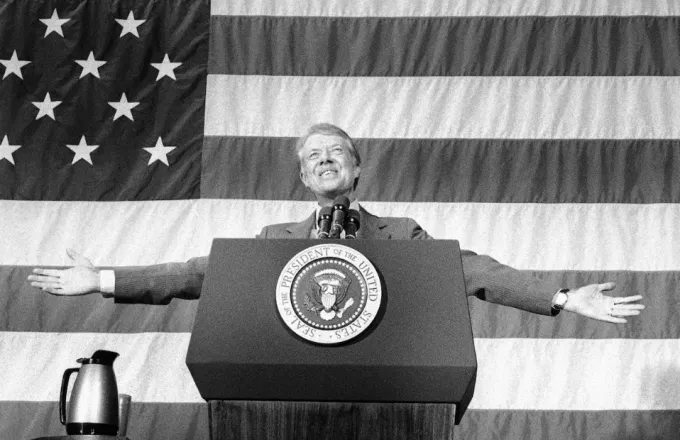
– AMPE – Fox News – Wikipedia
Source :Skai
With a wealth of experience honed over 4+ years in journalism, I bring a seasoned voice to the world of news. Currently, I work as a freelance writer and editor, always seeking new opportunities to tell compelling stories in the field of world news.


